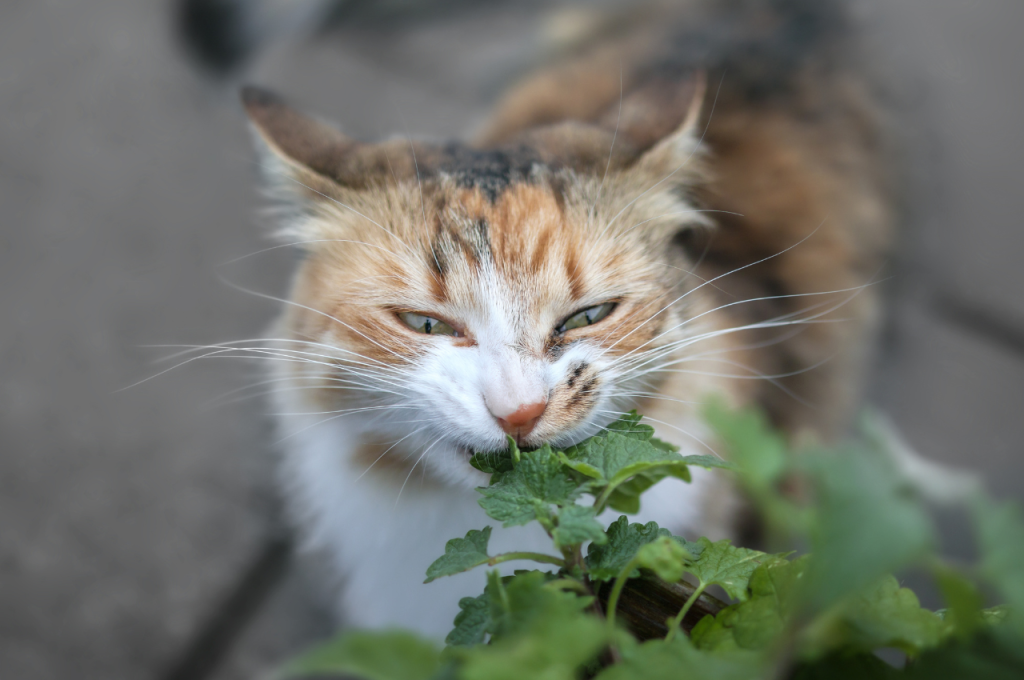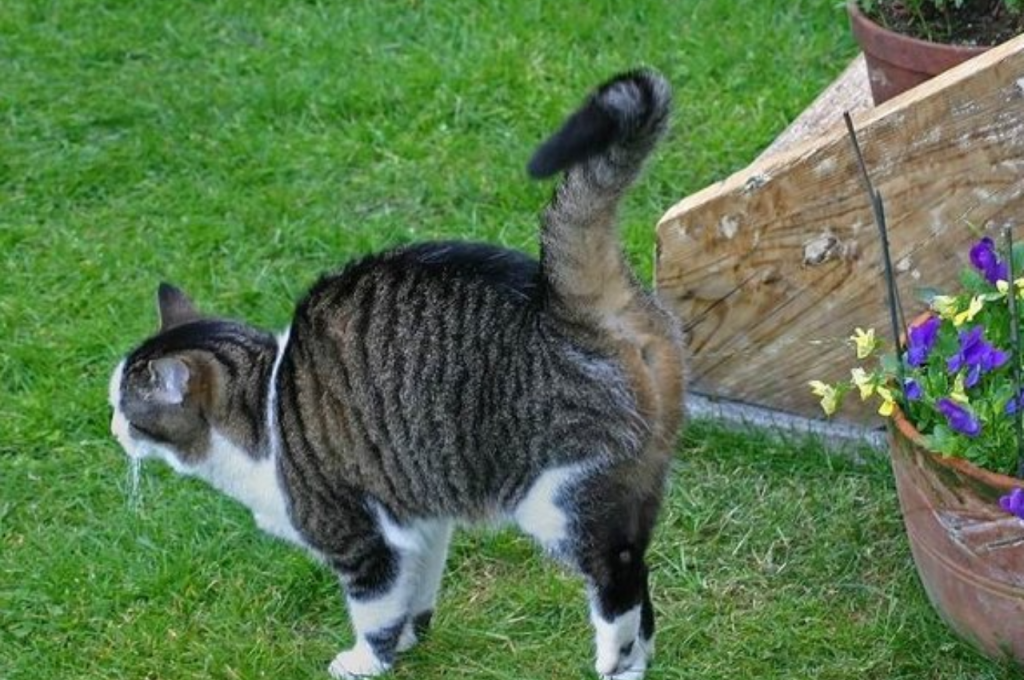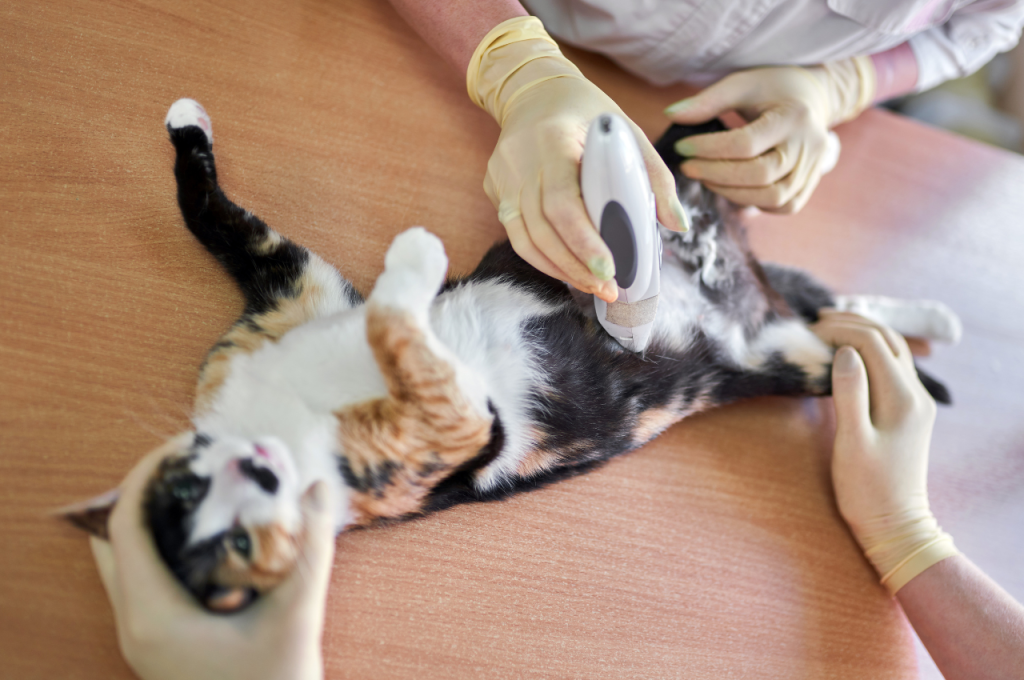Neutered male cats can exhibit behavior problems such as aggression, spraying, and territorial marking. These issues are often related to hormonal changes and can be managed with behavioral interventions and sometimes medication.
Male cats that have been neutered may display behavior problems due to hormonal changes. These issues can include aggression, spraying, and territorial marking. Fortunately, with the right interventions, such as behavioral modification and, in some cases, medication, these problems can be effectively managed.
Understanding the potential behavior problems associated with male cats being neutered can help owners address these issues and ensure a harmonious relationship with their feline companions.
Introduction to Male Cat Neutering
Neutering male cats is a common procedure that involves the removal of the testes to prevent reproduction. This surgery offers numerous benefits, including reducing territorial behaviors like spraying and aggression. It also helps in controlling the cat population, preventing unwanted litter. Neutering can improve your cat’s overall health and longevity, making it an essential aspect of responsible pet ownership.

Reasons Behind Neutering
- Prevents unwanted litters
- Reduces aggressive behavior
- Lowers the risk of certain diseases
Brief Overview of The Procedure
Neutering involves the surgical removal of a male cat’s testicles under anesthesia.
The procedure is safe and common in veterinary practices.
Common Behavior Problems Post-neutering
After neutering, male cats might experience some behavioral changes, but most are positive. Common issues include temporary lethargy or changes in appetite. Some cats may still display territorial behaviors, but these usually diminish over time. Increased affection and reduced aggression are typical benefits. Monitoring your cat’s behavior and providing a stable environment can help address any post-neutering challenges.
Aggression Shifts
Aggression shifts in male cats post-neutering are not uncommon. While some may become more docile, others may display increased aggression, particularly towards other cats. This behavior can be attributed to the cat’s territorial instincts and a shift in hormone levels. It’s important to provide a calm and stable environment to help your cat adjust to these changes.
Litter Box Issues
Litter box issues can arise after neutering, with some male cats exhibiting changes in their litter box habits. This could include urinating or defecating outside the box or marking territory. It’s crucial to address these issues promptly by ensuring the litter box is kept clean and providing multiple litter boxes in different areas of the home.
Changes in Activity Levels
Changes in activity levels are commonly observed in male cats following neutering. Some may become less active, while others may display increased energy. It’s essential to provide mental and physical stimulation through interactive play and environmental enrichment to help your cat adjust to these changes.
Aggression: Myth Vs. Reality
Discover the truth about aggression in neutered male cats. Despite common misconceptions, behavior issues post-neutering are rare and often unrelated to aggression. Factors like environment and individual personality play a significant role in a cat’s behavior.
Understanding Aggression Post-neutering
Aggression in male cats is a common concern among pet owners, especially after they have been neutered. Many people hold certain misconceptions about the effects of neutering on a cat’s behavior, leading to the perpetuation of myths. However, it is essential to separate fact from fiction when it comes to aggression in neutered male cats. Understanding the reality of this issue can help owners address and manage any potential behavior problems effectively.
Factors Influencing Aggressive Behavior
Several factors can influence aggressive behavior in male cats, even after they have been neutered. It is crucial to consider these factors to gain a comprehensive understanding of the situation. Some of the key factors include:
- Hormonal changes: Although neutering reduces the production of testosterone, it does not eliminate all hormonal influences. Some cats may still exhibit aggressive behavior due to residual hormones or individual variations in hormone sensitivity.
- Environmental stressors: Cats are highly sensitive to their surroundings, and stressful environments can trigger aggressive behavior. Factors such as changes in the household, introduction of new pets, or lack of mental stimulation can contribute to aggression in neutered male cats
- Prior learning: Cats may develop aggressive tendencies as a result of learned behavior. If a cat has previously been rewarded for aggressive actions, such as during play or when defending resources, it may continue to exhibit such behavior even after neutering.
- Medical issues: It is essential to rule out any underlying medical conditions that may contribute to aggressive behavior. Pain, discomfort, or illness can cause cats to become irritable and more prone to aggression.
Addressing Aggression in Neutered Male Cats
Managing aggression in neutered male cats requires a multi-faceted approach that considers the individual cat’s needs and circumstances. Here are some strategies that can help:
- Consult with a veterinarian: If your neutered male cat is displaying aggressive behavior, it is advisable to consult with a veterinarian. They can assess the situation, rule out any underlying medical issues, and provide guidance on behavior modification techniques.
- Provide environmental enrichment: Ensuring that your cat’s environment is enriched with toys, scratching posts, and interactive play can help alleviate stress and redirect aggressive behavior.
- Positive reinforcement: Rewarding desirable behavior and avoiding punishment-based techniques can help shape your cat’s behavior positively. Using treats or praise when your cat displays calm and non-aggressive behavior can be effective.
- Seek professional help: In some cases, working with a professional animal behaviorist or trainer may be necessary to address aggression effectively. They can provide tailored strategies and guidance specific to your cat’s needs.
By understanding the reality of aggression in neutered male cats and addressing it proactively, owners can create a harmonious and safe environment for their feline companions. Remember, with patience, consistency, and appropriate interventions, many behavior problems can be successfully managed.
Spraying and Marking: Does Neutering Help
Neutering male cats can help reduce behavior problems such as spraying and marking. This surgical procedure is effective in curbing these unwanted behaviors, making for a happier and more harmonious household.

Pre-neutering Behavior
Before we delve into the impact of neutering on spraying and marking, let’s first understand the pre-neutering behavior of male cats. Unneutered male cats are more likely to exhibit territorial marking behaviors such as spraying urine to communicate their presence and establish boundaries. This behavior is driven by their natural instincts to attract mates and assert dominance. However, it can become a problem when it occurs indoors or in undesirable areas, leading to unpleasant odors and stains.
Impact of Neutering on Spraying
Neutering, which involves the surgical removal of a male cat’s testicles, can have a significant impact on spraying and marking behavior. When a male cat is neutered, it reduces the production of testosterone, the hormone responsible for driving mating and territorial behaviors. As a result, neutered cats are less likely to spray urine and mark their territory. Neutering not only helps prevent spraying but also offers other benefits. It can reduce aggression, roaming tendencies, and the risk of certain health issues such as testicular cancer.
Additionally, neutered cats are less prone to getting into fights with other male cats, which can lead to injuries and infections. While neutering is highly effective in reducing spraying behavior, it is important to note that it may not completely eliminate the behavior in all cases. Some cats may continue spraying due to learned behaviors or underlying medical conditions. Consulting with a veterinarian can help determine the best course of action if spraying behavior persists after neutering.
To summarize, neutering is an effective method to address spraying and marking behavior in male cats. By reducing testosterone levels, neutering helps minimize the urge to spray urine and mark territories. It not only benefits the cat but also promotes a cleaner and more harmonious living environment for cat owners. Remember, each cat is unique, so it’s always a good idea to consult with a veterinarian for personalized advice and guidance on addressing behavior problems in neutered male cats.
Neutering and Obesity: The Link Explained
Male cats being neutered can experience behavior problems, including an increased risk of obesity. Neutering can lead to reduced activity levels and changes in metabolism, making it important for cat owners to monitor their pet’s weight and provide a balanced diet to prevent obesity-related health issues.
Causes of Weight Gain Post-neutering
Post-neutering, male cats often experience weight gain due to reduced metabolism and increased appetite. The hormonal changes can lead to a more sedentary lifestyle. Providing a balanced diet and encouraging regular exercise can help manage their weight. Monitoring your cat’s food intake and activity level is essential to prevent obesity and maintain overall health.
Managing Weight Effectively
Managing your cat’s weight effectively involves a balanced diet, regular exercise, and portion control. Choose high-quality cat food tailored to their age and activity level. Engage your cat in daily play sessions to keep them active. Regularly monitor their weight and consult with your veterinarian to ensure your cat maintains a healthy weight.
Behavioral Changes and Bonding
Neutering male cats can lead to behavioral changes such as reduced aggression and roaming. However, some cats may experience behavior problems like spraying and increased appetite. These changes can be managed through environmental enrichment and proper veterinary care.
Impact on Cat-owner Relationship
Neutering male cats can result in significant behavioral changes that can affect the bond between the cat and its owner. Before neutering, male cats are driven by their natural instincts, which can lead to aggressive behavior, territorial marking, and roaming. After neutering, these behaviors tend to subside, leading to a calmer and more affectionate cat. However, it is essential to note that the time it takes for a cat to adjust to its new behavior after neutering can vary. Some cats may become more affectionate and clingy, while others may become more aloof and independent.
Therefore, it is crucial for cat owners to be patient and give their cats the time they need to adjust to their new behavior.
Improvements in Social Behavior
One of the significant benefits of neutering male cats is the improvement in their social behavior. Neutered male cats tend to be less aggressive and territorial, making them more social and friendly towards other cats and humans. Moreover, neutered cats are less likely to engage in destructive behavior, such as scratching furniture or carpets. In addition, neutered cats tend to be more content and less likely to roam, reducing their chances of getting into fights with other cats or getting lost. This can also lead to improved mental and physical health as they are less prone to stress and anxiety.
In conclusion, neutering male cats can lead to significant behavioral changes that can affect their bond with their owners and their social behavior towards other cats and humans. However, with patience and understanding, cat owners can help their cats adjust to their new behavior and enjoy the benefits of having a calmer and more affectionate feline companion.
Medical Complications That Affect Behavior
Male cats being neutered may exhibit behavior problems due to medical complications like urinary issues, pain, and hormonal changes. These can lead to aggression, spraying, or increased anxiety in cats post-surgery. It’s crucial to monitor and address any unusual behaviors promptly to ensure the cat’s well-being.
Recognizing Post-surgical Complications
After being neutered, male cats may experience a range of medical complications that can influence their behavior. It’s important for cat owners to be aware of these potential issues and to recognize the signs of post-surgical complications. Some common post-neutering medical problems include infection, excessive bleeding, and adverse reactions to anesthesia. If a cat displays symptoms such as prolonged lethargy, loss of appetite, or signs of pain, it’s crucial to seek veterinary attention promptly.
How Medical Issues Influence Behavior
Medical problems following neutering can significantly impact a male cat’s behavior. Pain or discomfort caused by post-surgical complications can lead to changes in a cat’s temperament, causing them to become irritable, anxious, or aggressive. Additionally, cats may exhibit changes in their eating and grooming habits as a result of medical issues. These behavioral changes can be distressing for both the cat and its owner, underscoring the importance of promptly addressing any medical complications that arise following neutering.
In summary, recognizing and addressing post-surgical complications is crucial to ensuring the well-being and behavior of male cats following neutering. By being vigilant for signs of medical issues and seeking prompt veterinary care when needed, cat owners can help mitigate the impact of these complications on their pet’s behavior.
Addressing and Managing Behavioral Issues
Addressing and managing behavioral issues in cats involves identifying the root cause, such as stress, boredom, or medical problems. Provide a stimulating environment with plenty of toys and interactive playtime. Ensure your cat’s routine includes regular feeding times and adequate rest. If problems persist, consult with a veterinarian or a cat behaviorist to develop a tailored plan for managing and improving your cat’s behavior.
Training and Environmental Enrichment
Training and environmental enrichment are essential for addressing behavior problems in neutered male cats. Positive reinforcement training can help modify undesirable behaviors, such as aggression or spraying. Providing enrichment activities, such as interactive toys and climbing structures, can also reduce stress and prevent boredom, leading to improved behavior.
When to Seek Professional Help
If your neutered male cat continues to exhibit behavior problems despite your efforts, it may be time to seek professional help. Consulting a veterinarian or animal behaviorist can provide valuable insights and strategies to address the underlying issues contributing to your cat’s behavior.
Neutering Benefits Outweigh Concerns
Male cats can experience behavior problems after being neutered, such as aggression and urine marking. However, the benefits of neutering, such as reducing the risk of certain health issues and preventing overpopulation, outweigh these concerns.

Summarizing Behavioral Insights
Male cats being neutered may exhibit some behavioral changes, but these can be addressed through proper care and attention. Neutering can help prevent unwanted behaviors such as urine marking, aggression, and roaming, which can lead to injuries and other problems. Additionally, neutering can also help prevent certain health issues such as testicular cancer and prostate problems.
Final Thoughts on Responsible Pet Ownership
As pet owners, it is our responsibility to ensure the health and well-being of our pets. Neutering is an important aspect of responsible pet ownership that can benefit both the pet and the owner. By neutering male cats, we can prevent unwanted behaviors and health issues, while also contributing to the overall welfare of the pet population. As we have seen, there may be some concerns regarding behavior changes in male cats after neutering. However, these concerns are outweighed by the numerous benefits of neutering.
By providing proper care and attention, we can help our male cats adjust to the changes and live happy and healthy lives. So, as responsible pet owners, let’s do our part to neuter our male cats and contribute to the well-being of our furry friends.
Conclusion
Understanding the behavior problems of male cats after neutering is crucial for pet owners. By addressing issues like aggression and spraying early on, you can ensure a smoother transition for your feline friend. With proper care and attention, you can help your male cat adjust positively to this significant change.
